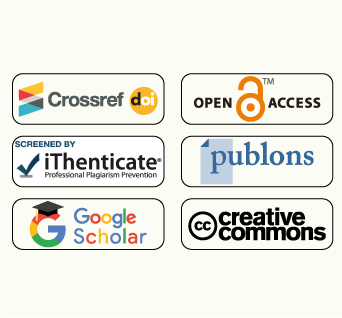Teaching strategies, pedagogical competence, and challenges among maritime professional instructors of maritime higher education institutions (MHEIs): bases for an enhancement program
Abstract
Purpose: This study aimed to investigate the teaching strategies, pedagogical competence, and challenges encountered by maritime professional instructors in Maritime Higher Education Institutions (MHEIs) to inform the development of an enhancement program.
Methods: A descriptive-comparative design was employed, utilizing a quantitative approach to examine the teaching strategies, pedagogical competence, and challenges faced by 75 maritime professional instructors selected through stratified random sampling. Data were gathered using a researcher-made instrument consisting of four parts, with its validity established through expert validation and reliability ensured via pilot testing using Cronbach's Alpha method.
Findings: The results indicated that the most prevalent teaching strategies among maritime professional instructors included quizzes, tests, discussions, demonstrations, hands-on activities, practical exercises, and lectures enhanced by interactive techniques. The instructors exhibited a very high level of pedagogical competence overall and across various categories, including rank, teaching experience, educational attainment, and classification. Nonetheless, they encountered significant challenges such as financial concerns, limited resources and skills, and fatigue stemming from inadequate sleep.
Research Implications: The study underscores the importance of a balanced approach that integrates traditional and interactive teaching methods to foster comprehensive learning in maritime education. The high level of pedagogical competence among instructors highlights their effectiveness in facilitating meaningful learning experiences. Furthermore, the findings suggest that factors such as training in instructional methods and industry expertise may be more critical in developing effective teaching skills than conventional indicators like rank, experience, or educational background.
Practical Implications: Educational institutions should consider addressing the challenges faced by maritime professional instructors by providing support systems and resources that enhance teaching efficacy and well-being. Additionally, promoting ongoing professional development focused on instructional methods and practical skills can further strengthen the pedagogical competence of instructors, ultimately benefiting student learning outcomes in maritime education.
Received: 05 August 2024
Accepted: 02 September 2024
Published: 22 September 2024
Keywords
Full Text:
PDFReferences
A.K. and -, K.D. (2023) ‘Relationship between Academic Achievements and Ethical Consideration in Research’, International Journal For Multidisciplinary Research, 5(2). Available at: https://doi.org/10.36948/ijfmr.2023.v05i02.1740.
Abad, M. and Manalo, K. (2020) ‘Instructional Competence and Faculty Performance among Maritime Schools in Central Luzon’, International Journal of Multidisciplinary: Applied Business and Education Research, 1(1). Available at: https://doi.org/10.11594/ijmaber.01.01.09.
Erno, G.Y.L. (2022) ‘A Transcendental Phenomenological Analysis on the Financial Literacy among Senior High School Teachers in Carrascal National High School, Philippines’, The International Journal of Business & Management, 10(6). Available at: https://doi.org/10.24940/theijbm/2022/v10/i6/bm2206-032.
Estimo, E. (2020) ‘Ship to Academe, Seafaring to Teaching: Seafarer Teachers in Maritime Higher Education Institutions in the Philippines’, Higher Education Research, 5(2). Available at: https://doi.org/10.11648/j.her.20200502.12.
Frias, A., Água, P. and Simões-Marques, M. (2022) ‘Education as a maritime safety improvement factor’, in Human Factors and Systems Interaction. Available at: https://doi.org/10.54941/ahfe1002134.
I.H. (2023) ‘Innovation Pedagogy of 21st Century: Challenges and Opportunities’, International Journal For Multidisciplinary Research, 5(3). Available at: https://doi.org/10.36948/ijfmr.2023.v05i03.3339.
Marina (2024) ‘Marina Circular no. SC-2024-01, series of 2024, Policies, Rules and Regulation on the Accreditation of Instructors and Training Course Assessors of Maritime Training Institutions, and Competency Assessors of Assessment Centers. ’. Available at: https://stcw.marina.gov.ph/wp-content/uploads/2016/02/MC-No.-SC-2024-01-1_1.pdf.
Martínez de Osés, F.X. and Ventura Jariod, E. (2021) ‘Statistical Analysis of the Weather Conditions of the Main SSS Routes in the Western Mediterranean for Its Presentation and Use as a Participatory Site Web to Support Learning Processes’, in The 1st International Conference on Maritime Education and Development. Available at: https://doi.org/10.1007/978-3-030-64088-0_3.
Maryani, M., Arafat, Y. and Setiawan, A.A. (2022) ‘The Influence of Teacher Education Level and Working Period on Teacher Pedagogic Competence’, Journal of Social Work and Science Education, 2(3). Available at: https://doi.org/10.52690/jswse.v2i3.251.
Melzer, J.C.B.& D. (2021) Engaging Ideas: The Professor’s Guide to Integrating Writing, Critical Thinking, and Active Learning in the Classroom, Jossey-Bass (A Wiley Brand).
Piaget Jean (1977) ‘The development of thought: Equilibration of cognitive structures. Viking Press.’
Radkevych, V. et al. (2023) ‘Pedagogical Aspects of the Formation of Ecological Competence of Specialists of the Maritime Branch’, International Journal of Engineering Pedagogy, 13(1). Available at: https://doi.org/10.3991/ijep.v13i1.36125.
Sawitri Wulandari, Rr.R., Selasdini, V. and Sulistya Kurniawan, D. (2020) ‘development of human resources quality through implementation of academic information systems for education and training participants at maritime higher education (stip) jakarta’, Dinasti International Journal of Digital Business Management, 2(1). Available at: https://doi.org/10.31933/dijdbm.v2i1.627.
Sharma, A. and Nazir, S. (2021) ‘Assessing the technology self-efficacy of maritime instructors: An explorative study’, Education Sciences, 11(7). Available at: https://doi.org/10.3390/educsci11070342.
Tkachenko, N., Kovalchuk, V. and Wenjing, Y. (2023) ‘21ST CENTURY TEACHER’S TRANSVERSAL COMPETENCIES: THEORETICAL ANALYSIS’, SOCIETY. INTEGRATION. EDUCATION. Proceedings of the International Scientific Conference, 1, pp. 395–405. Available at: https://doi.org/10.17770/sie2023vol1.7169.
Victoriano, J.J., Villaruz, R.T. and Alimen, R.A. (2022) ‘Teaching Situation and Instructors’ Key-Competencies at the College of Maritime Education (CME): Evaluation of the Marine Engineering Students’, TransNav, the International Journal on Marine Navigation and Safety of Sea Transportation, 16(2), pp. 241–250. Available at: https://doi.org/10.12716/1001.16.02.06.
Vujičić, S. et al. (2020) ‘Assessment for Ensuring Adequately Qualified Instructors in Maritime Education and Training Institutions’, ATHENS JOURNAL OF SCIENCES, 7(2), pp. 115–126. Available at: https://doi.org/10.30958/ajs.7-2-4.
DOI: https://dx.doi.org/10.21622/MRT.2024.03.2.948
Refbacks
- There are currently no refbacks.
Copyright (c) 2024 Joseph Daiz, Elisa Vinco-Garcia
Maritime Research and Technology
E-ISSN: 2812-5622
P-ISSN: 2812-5614
Published by:
Academy Publishing Center (APC)
Arab Academy for Science, Technology and Maritime Transport (AASTMT)
Alexandria, Egypt
mrt@aast.edu

